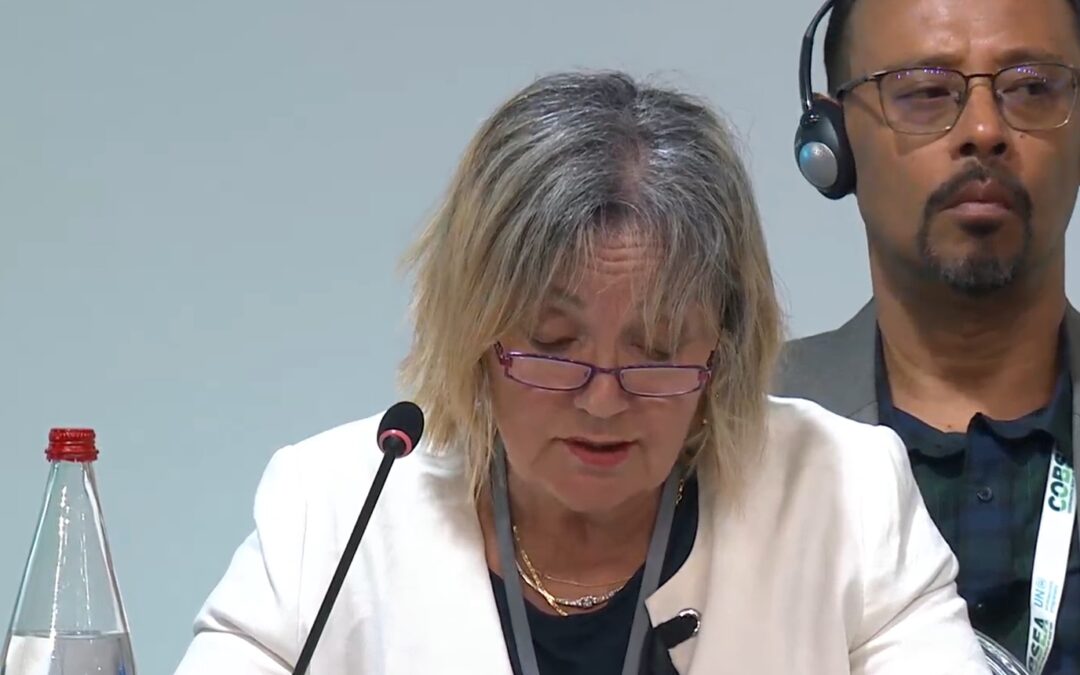Greater Action and Accountability in the Protection of Shared Marine Resources
During the 8th panel, held on June 11 at the UN Ocean Conference in Nice, leaders from island nations, least developed countries, and coastal States called for accelerated action, stronger accountability, and climate-resilient solutions to protect shared marine resources and the communities that depend on them.
Convened by the United Nations Environment Programme (UNEP), the meeting emphasized the role of multilateralism, strengthened coordination, and alignment with global frameworks. These include the Agreement on Marine Biodiversity of Areas Beyond National Jurisdiction, the Kunming-Montreal Global Biodiversity Framework, and the upcoming Plastics Treaty — all essential tools for better addressing climate change, marine biodiversity loss, and pollution.
Tatjana Hema, Coordinator of UNEP/MAP, took part in this panel. She presented the outcomes of the twenty-fourth Global Meeting of the Regional Seas Conventions and Action Plans. In her intervention, Tatjana Hema strongly emphasized the importance of regional cooperation in addressing the environmental challenges affecting seas and oceans. She recalled that the Regional Seas – through their Conventions and Action Plans (RSCAP) – represent a key instrument to support countries in achieving the Sustainable Development Goals, particularly SDG 14, dedicated to life below water.
According to Tatjana Hema, these regional instruments have a great advantage: they are close enough to the territory to understand concrete needs, but also maintain the right distance to address problems on a broader scale, such as pollution, biodiversity loss, and climate change. This dual perspective allows for reconciling local needs with global commitments, offering strong, flexible governance based on scientific knowledge.
“Another important added value of the RS is integration. RS set-up support resolving environmental and sustainability issues through integrated solutions and holistic approaches, considering their cross-cutting thematic scope which touches upon a wide scope of environmental issues, including pollution prevention and reduction, biodiversity conservation and ecosystem restoration, climate change adaptation, blue economy etc., thus supporting breaking the silos approaches so much needed now more than ever to address the challenges of combatting the triple planetary crisis pollution, climate change and biodiversity. “
An important part of her intervention was dedicated to MAP and the Barcelona Convention, the first regional framework established under the aegis of UNEP, which celebrates its 50th anniversary in 2025. “UNEP/MAP does not work in isolation. It belongs to the family of the RS programme of UNEP and works together with 17 RSCAP. This collaboration coordinated by UNEP among all RSCAP helps evolving our agendas, exchange best practises and lesson learned, tailor our actions and contribute to effectiveness. It also makes RS more aware of ways and means to better align our work at regional level with the global commitments through coherent and harmonized approaches. An example: RSCAPs in their meeting hosted by France during UNOC3 approved yesterday the updated Strategic Regional Seas Directions 2026-2029 and a joint Statement with strong commitments to support MS and or CPs in delivering SDG 14 in close interaction with UN organisation, MEA including the BBNJ Treaty, GBF and the forthcoming Plastic Pollution Treaty.”
Watch her intervention at minute 59:00 in the video available on UN Web TV.

